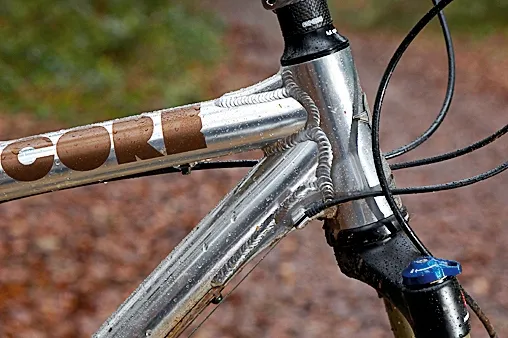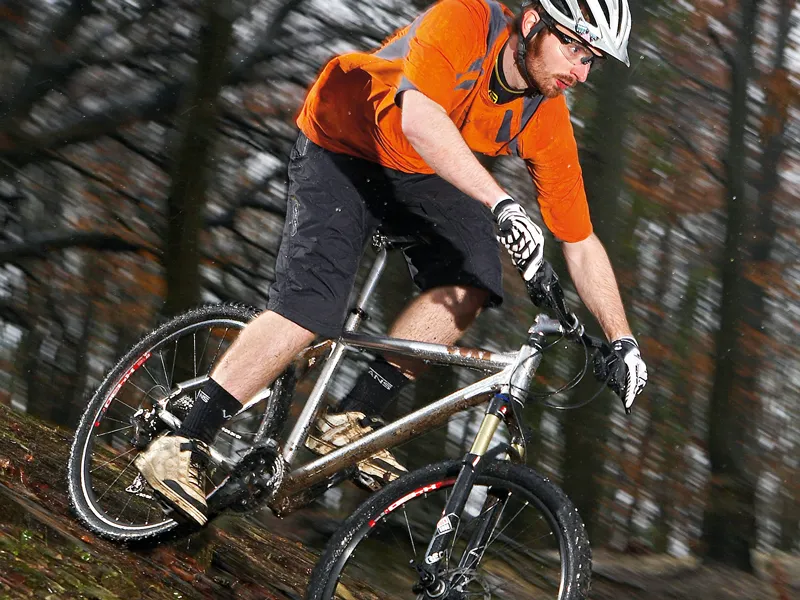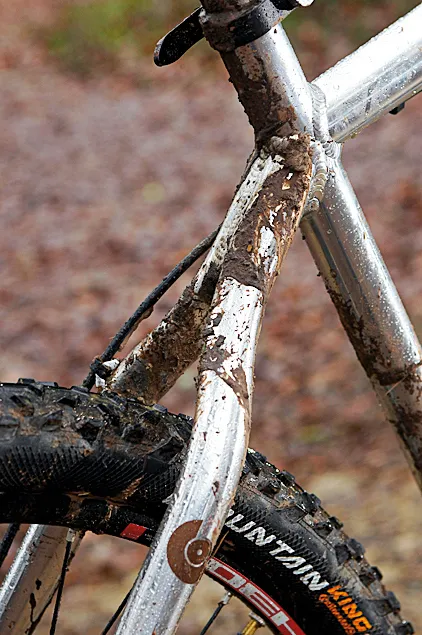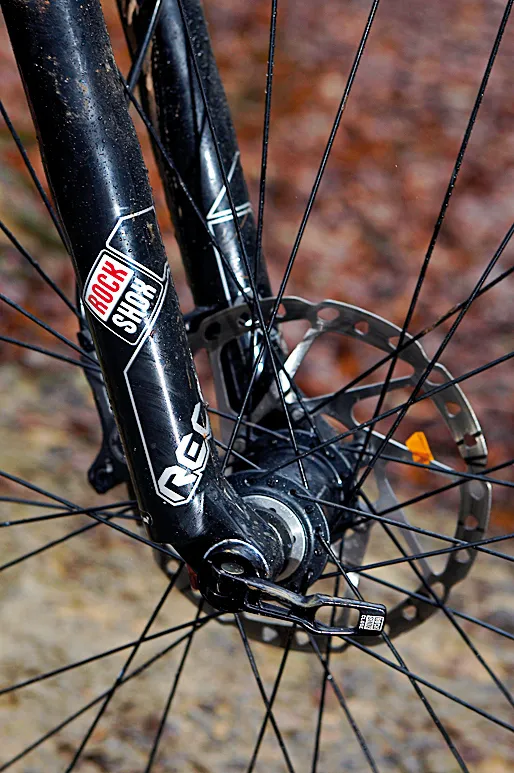Built for riders who enjoy pushing their limits on technical trails, Genesis’s Core 50 sits at the top of the five-strong Core range. With a revised geometry and frame, and componentry tweaks for 2011, it blends the svelte profile of cross-country inspired design with the hard-hitting ability of a tapered head tube, 20mm front hub and 120mm-travel fork. It may be a cliché to say it’s the best of both worlds, but it’s true here. If Genesis could find room for the added adjustability of an air fork, it’d be a damn near perfect trail hardtail.
Ride & handling: Cross-country + freeride DNA = great strength and great ride quality
It’s clear from the first turn of the pedals that the Core 50 is different to the majority of long-travel trail hardtails. With a clear weight advantage, the combination of a svelte frame structure and light, fast-rolling wheels gives the Genesis a sense of urgency that its competition simply can’t match.
The decision to avoid overbuilding the main frame is repaid in spades by a ride quality that has far more in common with cross-country race bikes than it does with all-mountain bruisers. Lithe, responsive and forgiving, the Genesis skips up technical climbs and floats through sections of fast singletrack.
Perfect weight distribution and neutral handling courtesy of a short stem/long top tube combo are the cherry on top. Many reasonably light trail hardtails can claim the same, of course. What makes the Core 50 special is the impressive torsional rigidity of the head tube, fork and front wheel.
We’ve ridden lightweight long-travel hardtails in the past whose fork and frame have pulled in opposite directions – the fork demanding higher speed through rough trail sections while the frame’s flex and whippiness has been holding things back. Not so with the Genesis.
The front wheel goes precisely where you point it and the rear end wafts through in its wake. It’s as simple as that. This unusual combination of uncompromising stiffness and relative resilience makes for a blindingly rapid trail machine – willing on the climbs and almost unbelievably competent on the descents.
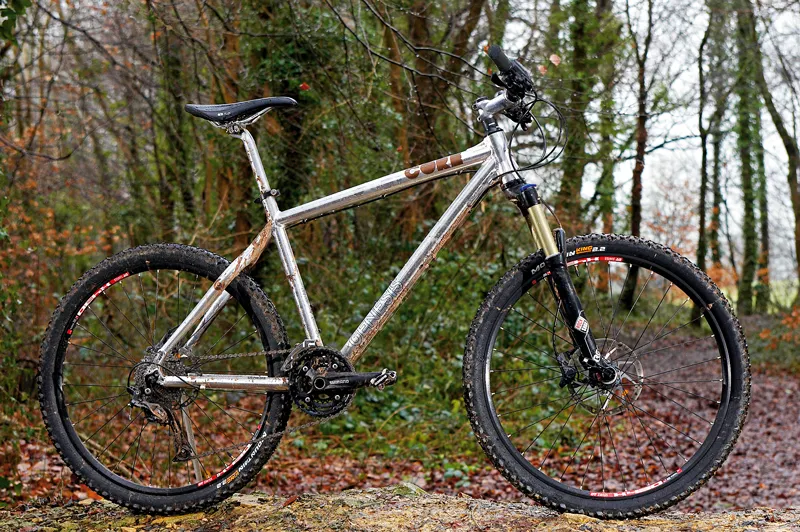
Frame & equipment: Tidy frame and spec; an air fork would make it nearly perfect
At first glance, the Core 50 is more whippet than bruiser. Genesis’s design team have rejected hydroformed tubes on the basis that regular ol’ pipework gives them more flexibility and all the strength and ride-tuning ability they need. Different frame sizes make use of varied tube diameters and wall thicknesses so that the ride characteristics are as similar as possible for all riders.
New for 2011, the massive tapered head tube and accompanying open-ended top and down tube gussets are the only obvious concessions to overt burliness. They give the front of the Core 50 a structure that’ll effectively resist twisting forces and damage from hard frontal impacts, while simultaneously allowing the use of lighter tube profiles elsewhere to reduce weight and preserve ride quality.
A surprisingly ordinary-looking down tube sports Crud Catcher mudguard mounts underneath, while the subtly tapered top tube is intended to reduce ride harshness without compromising efficiency. The twin tube wishbone seatstays leave plenty of room for mud clearance, and the structure wears its welds loud and proud under its polished and lacquered finish.
Forming an integral part of the rigid front end, the RockShox Recon Gold fork provides 120mm (4.7in) of coil sprung travel, though lighter riders may find the stock spring a tad firm. Making the most of all that rock-swallowing ability, the tapered steerer tube and 20mm Maxle add noticeable steering precision with minimal weight penalty.
Topping the spec list is a 10-speed Shimano SLX-based transmission with all the slick shifting and smooth performance you’d expect, and a low profile, rock-dodging rear mech. The main advantage of 10-speed is closely spaced ratios and, with a 24-tooth inner ring and standard 34-tooth large sprocket, this setup isn’t as low geared as some nine-speed combos.
Light tyres help keep rolling weight down, but Continental’s Mountain Kings aren’t our favourite treads for all-round grip and can be a handful in marginal grip conditions. Rider contact points are decent if unspectacular Genesis and Madison kit – and the inclusion of Shimano clipless pedals is a nice touch.
